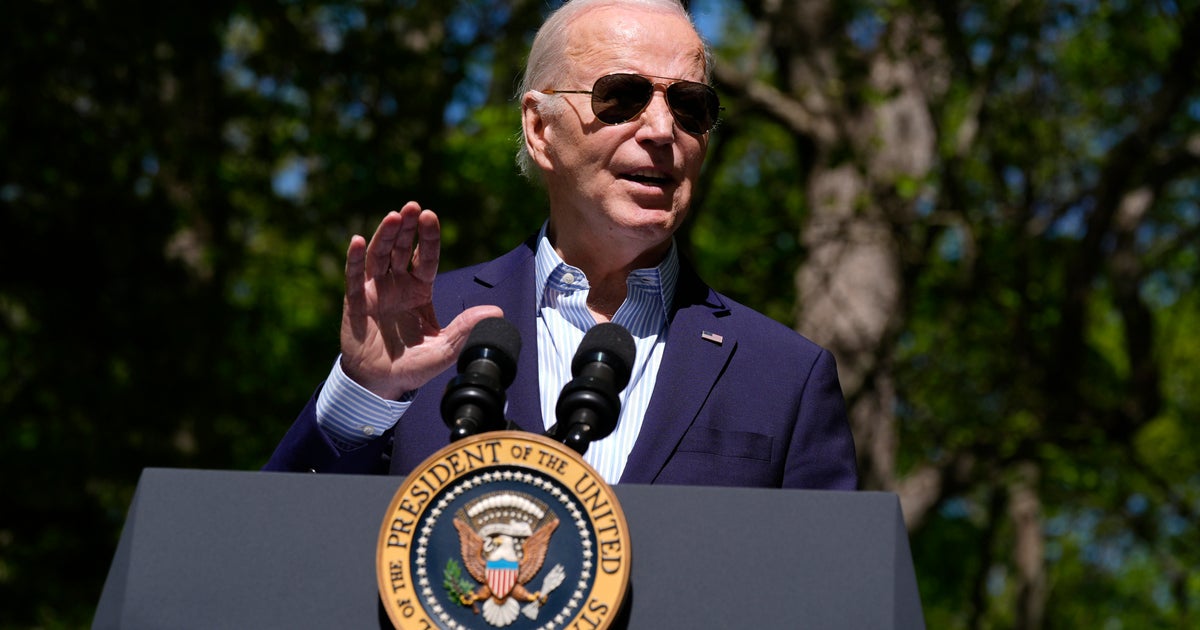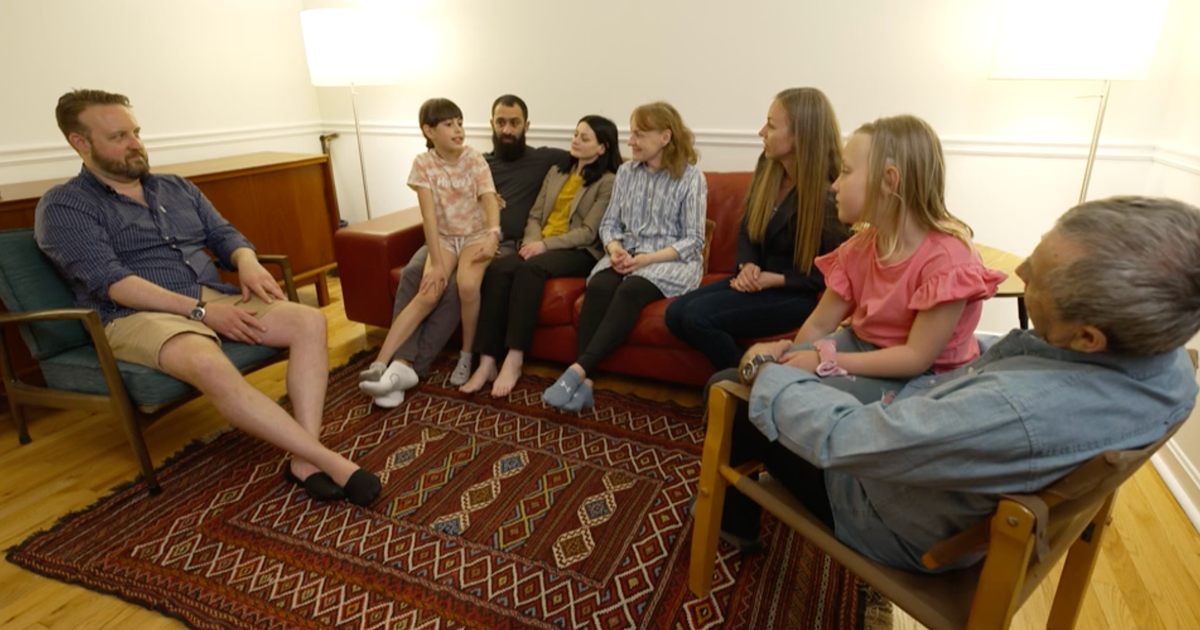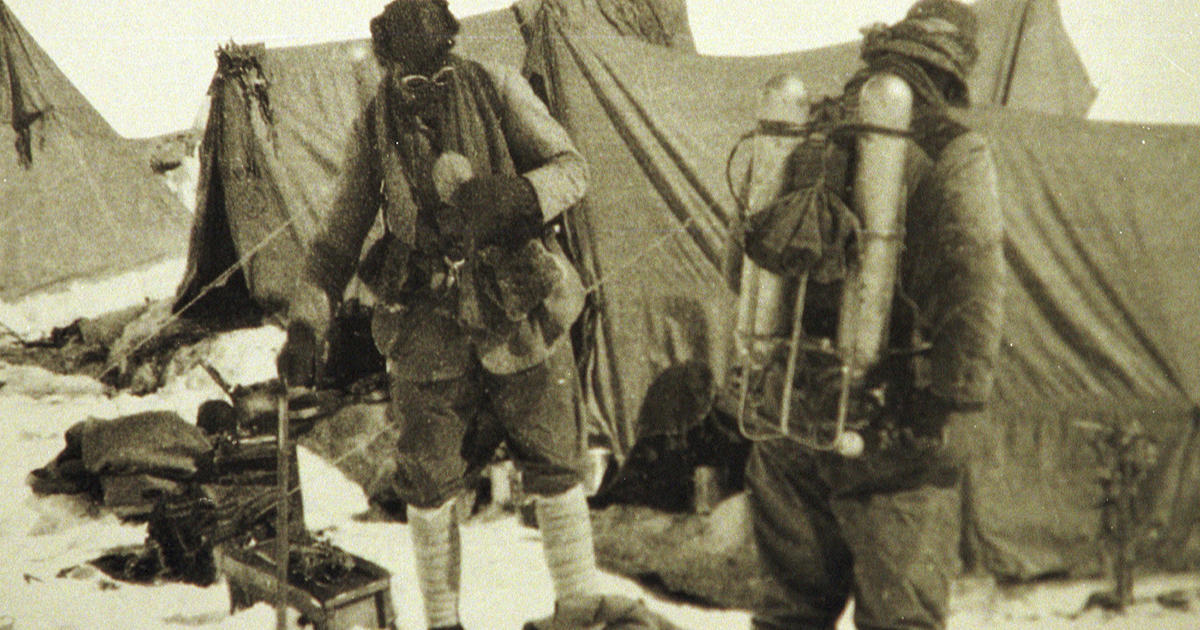Almost 150 from the American University of Afghanistan were evacuated, but thousands still want to leave
Washington — Nearly 150 students and staff from the American University of Afghanistan (AUAF) were evacuated before the U.S. completed its withdrawal at the end of August. But that was short of the AUAF administration's goal to get 1,200 out of the country, and now the university is working to move out the remainder as the Taliban government takes hold.
In secondary schools, the Taliban has ordered boys back to the classroom — but not girls — prompting fears that girls and women will be denied an education, as they were the last time the Taliban was in power two decades ago.
"It's still our commitment to relocate any of our students and personnel who request it," said Ian Bickford, president of the university. "We're advocating at every level of government. We are paying close attention to conditions to look for any opportunity to continue the resettlement of people. The fact is most movement out of Afghanistan is paused right now."
Established in 2006 as the nation's first private university, with a grant from the U.S. Agency for International Development, the university was founded with the aim of establishing a form of higher education built on the American model.
A U.S. State Department spokesperson said the department is in communication with school administrators. As many as 4,000 students, current and former employees, alumni and their families are still in the country.
Many of those left in Afghanistan fear for their safety. In 2016, the university suffered a deadly massacre that killed 19 people, including seven students and seven teachers. No group claimed responsibility, though many alleged it was the Taliban, according to a report by the U.S. State Department.
Despite their claims to the contrary, the Taliban's recent actions suggest a return to hard-line rule with a brutal crackdown on women's protests, journalists, and the announcement of an all-male government that includes Interior Minister Sirajuddin Haqqani, who is on the FBI's most-wanted list for a connection with a 2008 attack on a Kabul hotel that resulted in the deaths of six people.
During negotiations with the Trump administration last year, Haqqani wrote an opinion piece in the New York Times that promised that a Taliban government in Afghanistan "will find a way to build an Islamic system in which all Afghans have equal rights, where the rights of women that are granted by Islam — from the right to education to the right to work — are protected."
"Everyone knew I was a student there," said one 19-year-old female student who was able to get out and requested her name not be used, due to security concerns. "I knew I was in danger. I felt like life for me was over. I was so scared," she told CBS News.
She said she feared repercussions for being a student at an American university and that she had heard stories of the Taliban kidnapping young girls and forcing them to be Taliban brides. "I would rather kill myself than marry the Taliban," she said.
After Kabul fell to the Taliban in August, she said she received an email from the university informing her that she would be able to board an evacuation flight the next day. Departing with just a backpack holding two changes of clothing, she said she left behind a family she worries is no longer safe. "It felt like it was a nightmare. I still can't believe it's happening in my country. It even makes me cry to talk about it now."
The student said she is grateful to the university for getting her out of the country where she no longer saw a future. "I just want to be in a safe place like Europe, America, Canada — it doesn't matter. I just want to be in a safe place."
Dr. Victoria Fontan, vice president of academic affairs at the university and a professor of peace and conflict studies, said she initially stayed in a private security compound in Afghanistan on August 15 with about 400 other people, including four of her students and three colleagues. Over the next two nights, the Taliban sprayed bullets outside the compound in a display of force that has become a common background noise on the streets of Kabul.
On August 17, Fontan said the Taliban told the private security company in charge of the compound that anyone leaving the house would be arrested, effectively putting all 400 individuals in the compound under house arrest.
She said the security company was eventually able to negotiate payment to the Taliban to secure safe passage to the airport. However, Bilal Karimi, a Taliban spokesman, denied that claim to CBS News, and said money was not paid to Taliban fighters.
Fontan said she was separated from her students at the airport amid the chaos, and they were able to evacuate two days later. She first flew to her home country of France and then took another flight to another country, so that she could be reunited with her students. Twenty-six students and Fontan are now together in an undisclosed country.
Many of the evacuated are submitting visa applications in hopes of eventually arriving in the United States. A majority of the students remaining in Afghanistan still want to leave the country, according to Fontan. Those who feel that they can remain in Afghanistan are mostly male, she said.
Beyond Fontan and her 26 students, the rest of the students and staff who made it out of the country are now scattered across the world. "We are an intellectual reserve of this Afghanistan that once was. That's why even if the future is uncertain, what we have is the motivation to continue because we really are the guardians of a legacy," said Fontan.
Another professor who made it out of Afghanistan was separated from Fontan's group and said he lives with guilt over his decision to leave his country. "I lost everything. I lost my entire life. I never ever wanted to leave my country," he told CBS News.
He said he is haunted by the deaths of those he left behind. His friend and Afghan journalist Fahim Dashti was killed in a Taliban attack in the Panjshir province, one of the last pockets of resistance to the Taliban. "He remained true to the very end to his ideals and his values. His death broke my heart and left a wound that may never heal," the professor said.
The U.S invested over $100 million in the American University of Kabul, and the modernized campus has now been taken over by the Taliban. On August 31, with the U.S. withdrawal completed, the Taliban's higher education minister, Sheikh Abdul Baqi Haqqani, visited the AUAF campus.
Ahmad Mukhtar contributed to this report.




